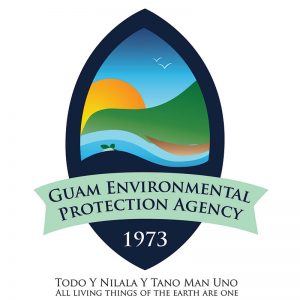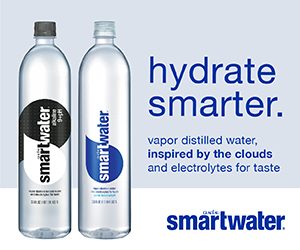A Guam Business Magazine series that connects businesses to government agencies
 Guam Environmental Protection Agency
Guam Environmental Protection Agency
- Phone: (671) 300-4751
- Website: http://epa.guam.gov/
- No. of staff: 53, according to the agency
- Governing legislation: Public Law 11-191, 10 GCA, §45103
- Administrator: Walter S. Leon Guerrero
Mission
“It is hereby declared to be the public policy of this territory of Guam that a high quality environment be maintained at all times to guarantee an enjoyable life for all people at present and in the future, and that environmental degradation of the quality of land, water and air by any pollutants, including all physical, chemical and biological agents, should not be allowed. To these ends, it is the purpose of this act to provide a united, integrated and comprehensive territory-wide program of environmental protect and to provide a framework to fulfill that task,” according to governing legislation.
Functions and services
- The Guam Environmental Protection Agency is responsible for the implementation of numerous acts dealing with food, drugs, recycling, water and sewage, air, trash, pesticides and storage of regulated substances.
- The agency is to publish all notices of violation, orders of compliance, notices of defense, voluntary compliance agreements of the Guam Pesticides Act and the Guam Beverage Container Recycling Act of 2010, settlement agreements and referrals to the Office of Attorney General for Prosecution no later than 15 days from service; and shall report all settlement agreements to the GEPA board of directors at the next scheduled regular board meeting.
- GEPA has five divisions helping to carry out mission and purposes:
- Administration
- Air and land
- Environmental monitoring and analytical
- Water and defense
- State memorandum of agreement/green parcel divisions
Highlights and challenges
“The Agency is pleased with the Leon Guerrero Tenorio administration for the passage of Guam Public Law 35-37 in October 2019, which finally adopted the rules and regulations for the Recycling Revolving Fund. This adoption has taken nearly 16 years to accomplish.”
“Recreational waters can harbor an array of different bacterial pathogens,” says Deputy Administrator Michelle C.R. Lazlo, “But human fecal pollution is the biggest concern for public health. Public advisories are issued for beaches that are considered polluted and deemed unsafe for swimming. Beach water quality management and remediation efforts are very complex. The degree and extent of microbiological, physical, and chemical pollution can be attributed to malfunctioning sewer systems, animal sources, illegal dumping, chemical application and migration, sewer overflows, flooding, trash, and residual chemicals carried by flowing water into the recreational waters.”
“Illegal dumping has become an increasingly large problem throughout Guam. Offenders often dump to avoid the cost and inconvenience of proper waste disposal. The dumping of garbage, household appliances, abandoned vehicles, construction and demolition debris, hazardous materials and other waste that endangers public health has been a priority at Guam EPA.”
Source: Michelle C.R. Lazlo, deputy administrator, Guam EPA
Editor’s note: The Northern Mariana Islands do not have their own Environmental Protection Agency, but falls under the Pacific Southwest, Region 9 of the U.S. EPA. The islands do have the Bureau of Environmental and Coastal Equality. This executive branch bureau’s mission is “To serve the public through wise management of CNMI natural resources, and by supporting healthy communities, a sustainable environment and a vibrant economy.” Contact the bureau at (1-670 )664-8500.













